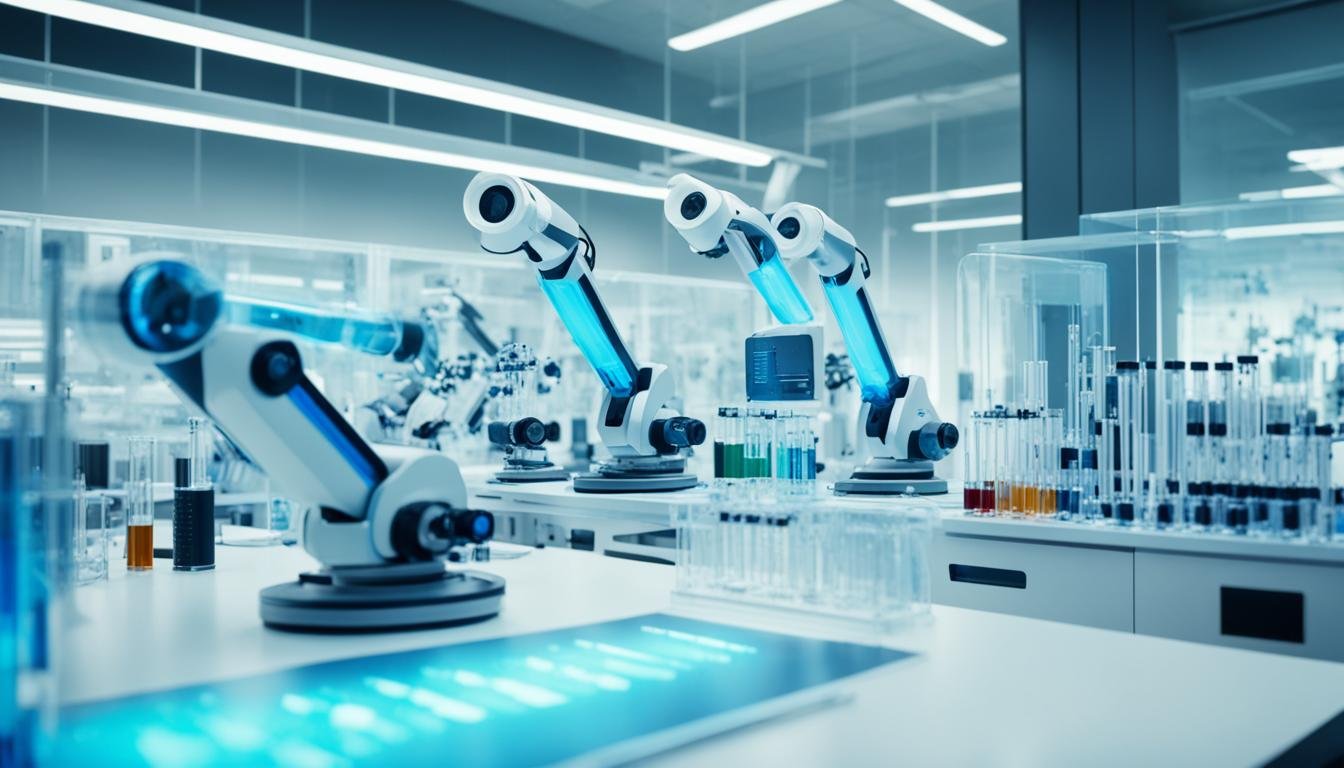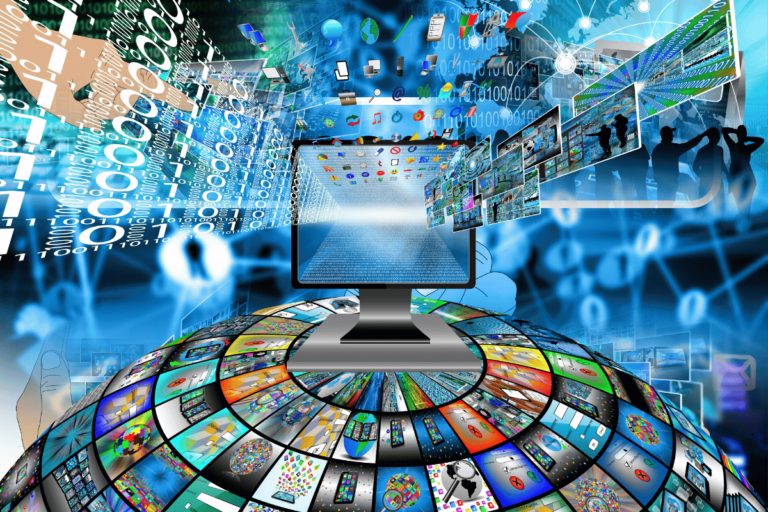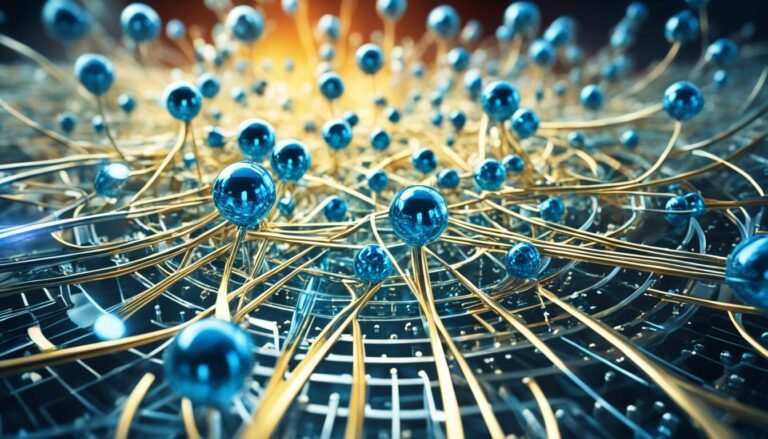AI in Drug Discovery: How AI is revolutionizing drug discovery and healthcare.
Did you know AI is changing how we make life-saving drugs? It’s now a key part of designing new molecules and predicting how proteins work. This tech, powered by machine learning and biology, is making drug discovery faster and cheaper.
Key Takeaways:
- AI is revolutionizing drug discovery and healthcare.
- It is being used in various stages of the drug discovery process.
- The potential of AI in drug discovery is substantial.
- Milestones in AI-enabled drug discovery include the first-ever AI-designed drug molecule entering human clinical trials.
- AI has the ability to predict protein structures and design de novo antibodies.
The Advantages of AI in Drug Discovery
AI is changing healthcare and drug discovery by using artificial intelligence to speed up and improve the drug-making process. This new method has many benefits that could change the future of medicine.
Accurate Target Identification
AI is great at looking through big datasets to find potential drug targets more accurately. It uses machine learning to spot patterns and connections that are hard to see by hand.
Protein Structure Prediction
AI tools like AlphaFold have changed how we predict protein structures, which is key in making drugs. AI helps scientists design drugs that work well with specific proteins, making them more effective.
Reduced Physical Testing
AI helps by cutting down on the need for expensive and time-taking tests of drug compounds. These simulations show how drugs work, their effects, and their safety, helping researchers make better choices early on.
Enhanced Prediction of Drug Properties
AI helps predict important things about potential drugs, like how safe they are and how well they work. This lets scientists pick and improve drug candidates before clinical trials, saving time and money.
De Novo Drug Generation
AI can make new and promising drug molecules from nothing. Using deep learning and lots of data, AI can find new drug candidates that might not have been thought of before.
Candidate Prioritization and Synthesis Pathways
AI helps pick the best drug candidates by looking at many factors like how well they work and their safety. It also makes paths for making drug compounds, making production faster and more innovative.
Overall, AI is changing drug discovery for the better. It makes things more precise, efficient, and could lead to big discoveries that help patients and public health.
The Impact of AI in Drug Discovery
AI has changed the game in drug discovery. It gives biotech companies new tools to speed up making new treatments. AI and machine learning have made the old drug discovery process faster and more successful.
Biotech companies using AI first are seeing big wins. Over 150 small-molecule drugs are in the early stages, with more than 15 in clinical trials. This shows how AI can find and develop new treatments.
AI’s biggest plus in drug discovery is boosting early drug development success. Small AI and machine learning gains can lead to many more new therapies. In fact, these advances could bring about 50 new therapies in 10 years. That’s a huge chance worth over $50 billion.
Investors are taking notice of AI’s impact in drug discovery. They’ve poured $5.2 billion into AI-enabled drug discovery by the end of 2021. The promise of lower costs and quicker development times draws scientists and investors alike.
The Future of AI in Drug Discovery
AI is set to change the game in drug discovery. It will make healthcare better by making treatments more personal and efficient. By using AI to develop drugs and analyze data, we’ll see a big leap in medicine.
AI will change healthcare by finding new treatments. It looks at big datasets to spot patterns, leading to new therapies. This means we’ll understand diseases better and treat them more effectively.
With personalized medicine, doctors can make treatments just for you. They’ll consider your genes, health history, and lifestyle. This makes treatments work better and have fewer side effects, helping patients more.
AI will also make clinical trials faster and smarter. It looks at patient data to find the right people for trials. This means trials are quicker and more focused, getting new drugs to patients sooner.
Getting a drug approved is a big step, and AI can help speed it up. It uses past data to predict what will work, making submissions stronger. This means getting new treatments out faster.
As AI becomes a bigger part of drug making, we’ll see big changes. It will make processes smoother, decisions better, and our understanding of diseases deeper. This could lead to new treatments that change lives worldwide.
References:
- “Integrating Artificial Intelligence into the Drug Development Process” – Pharma IQ
- “Artificial Intelligence for Precision Medicine and Drug Discovery” – GNS Healthcare
- “The Role of AI in Drug Discovery” – Bio-IT World
Conclusion
AI has changed the game in biopharma, making drug development faster and cheaper. It’s helped with finding targets, running clinical trials, making drugs, and getting them approved. This means we could see new drugs sooner and better health outcomes for everyone.
AI has changed healthcare by making drug development faster and more efficient. Machines can look through huge amounts of data to find important patterns. This makes finding new treatments quicker and more accurate, helping people with many diseases.
The future looks bright for AI in drug discovery. We’ll likely see treatments faster, at lower cost, and better care for patients. AI is key to tackling big health issues with more precision. It’s a game-changer in making new medicines and improving lives around the world.







